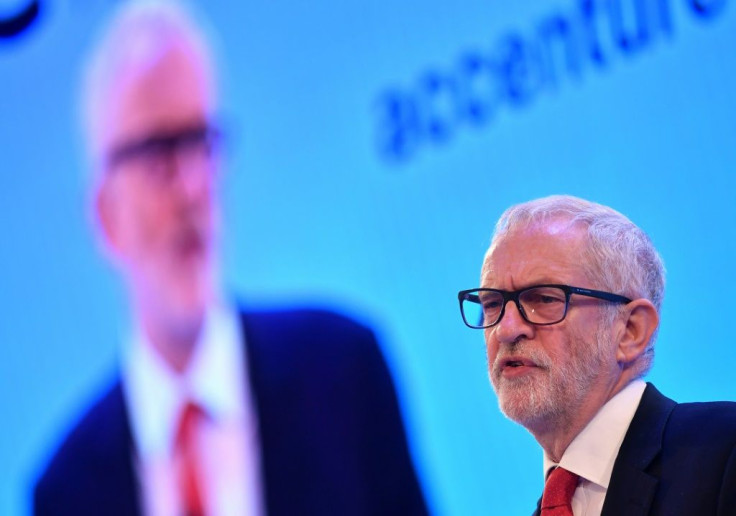'Time For Real Change': UK Labour Makes Election Pitch

British opposition Labour leader Jeremy Corbyn on Thursday sets out his party's manifesto for next month's election, promising the most radical plan for change for decades.
The party's programme of pledges includes nationalisations, a huge investment in public services and corporate reform, which Corbyn insists are "fully costed" and deliverable.
On Brexit, the key issue of the December 12 election, he has promised to strike a new exit deal with the European Union and hold a second referendum on Britain's membership.
Opinion polls show Labour trailing Prime Minister Boris Johnson's Conservatives but the opposition is still hoping to galvanise voters like it did in the last vote in 2017.
Ahead of the manifesto launch in Birmingham, central England, Corbyn claimed the programme was "full of popular policies that the political establishment has blocked for a generation".
He repeated the attacks on the rich and powerful that have been a feature of Labour's campaign so far, arguing that after nine years of Tory austerity measures, it was "time for real change".
"This is a manifesto of hope," he said.
Corbyn said hostility from business groups, political rivals and the right-wing media was inevitable, as "the system is working just fine for them -- it's rigged in their favour".
Radical policies announced so far include the nationalisation of parts of telecoms giant BT to provide free broadband for all, and the state takeover of rail, water and mail delivery services.
Labour wants to put workers on company boards and introduce pay ratios within firms, boost funds for health, education and transport and build 150,000 social or low-cost homes a year.
Taxes would rise for the top five percent of earners, with the rest covered by borrowing, estimated at ?55 billion ($71 billion, 64 billion euros) a year by the Institute for Fiscal Studies (IFS).
Johnson's Conservatives countered by announcing plans to cut taxes for the lowest paid, and deliver at least one million homes in five years.
The Tories have also promised a big investment in public services and infrastructure, funded by borrowing, but not on Labour's scale.
After Britain's EU exit was delayed three times under him and his Conservative predecessor, Johnson's focus in the election is on delivering the next Brexit deadline of January 31.
He says Corbyn's plan for a repeat of the 2016 referendum would offer only more delays.
"It's only because we will get Brexit done and end the uncertainty that we can afford to cut taxes for hard-working taxpayers," he said.
© Copyright AFP 2024. All rights reserved.





















